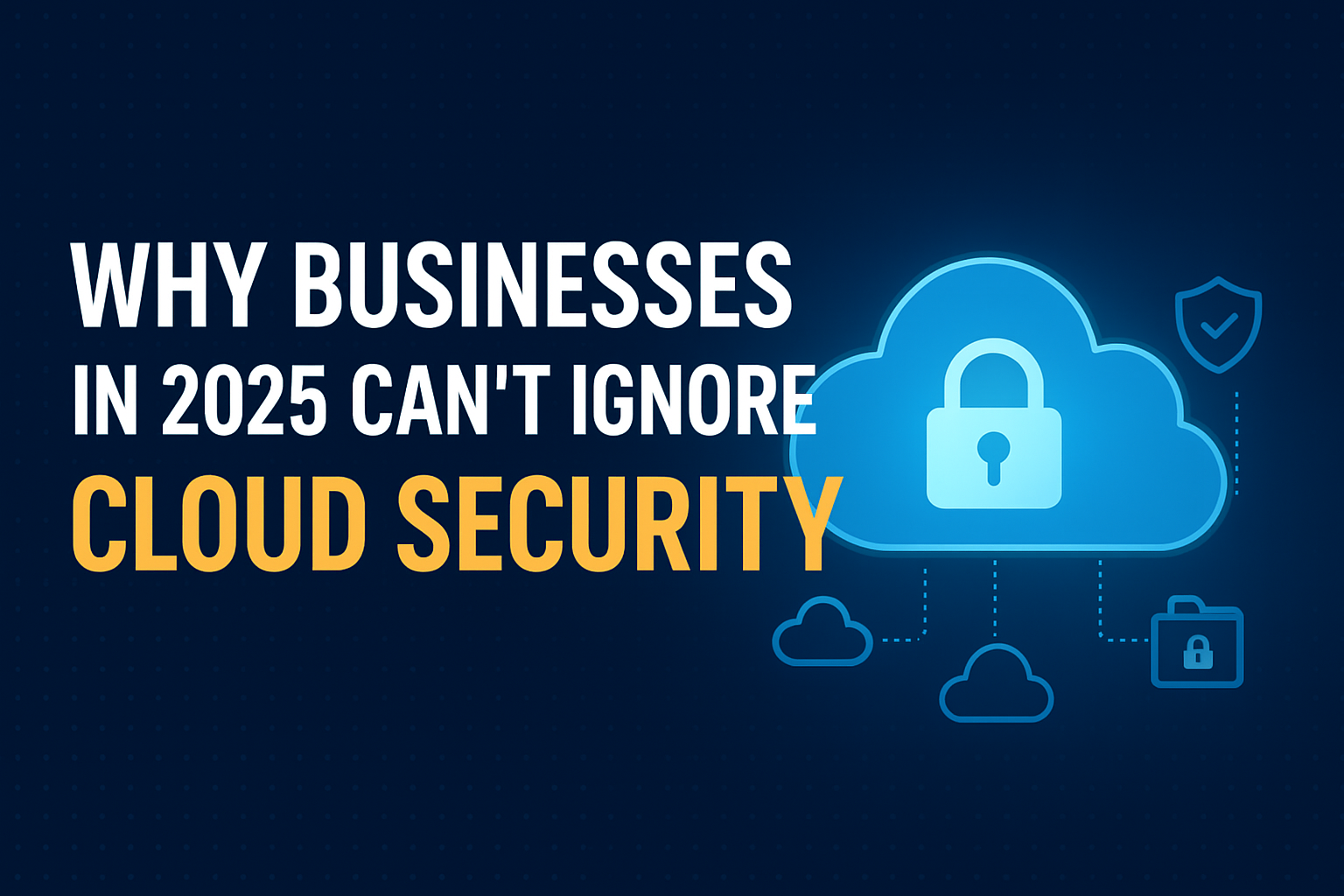Why Businesses in 2025 Can’t Ignore Cloud Security
Cloud computing has become the backbone of modern business operations, enabling flexibility, scalability, and cost savings. However, with this growing reliance on digital infrastructure, cloud security in 2025 is no longer optional—it’s essential. As cyber threats evolve, companies must safeguard sensitive information, customer data, and business continuity. Ignoring cloud security now can expose businesses to financial, legal, and reputational risks.
The Growing Importance of Cloud Security
In 2025, businesses of all sizes—from startups to multinational corporations—store critical workloads in the cloud. This digital shift has brought efficiency but also made organizations vulnerable to cyberattacks. Hackers are increasingly targeting cloud environments, exploiting weak configurations, and leveraging AI-driven attacks. According to recent reports, data breaches cost businesses millions annually, with cloud-based attacks becoming the primary driver.
As regulations tighten and customer expectations rise, businesses cannot afford to ignore the importance of cloud security in 2025. Organizations that fail to prioritize it risk losing customer trust and market credibility.
Key Risks of Ignoring Cloud Security
-
Data Breaches: Sensitive customer and business data may be stolen, leading to financial losses and compliance penalties.
-
Downtime & Business Disruption: Cyberattacks on cloud systems can cause outages, directly impacting productivity and revenue.
-
Regulatory Non-Compliance: Businesses in 2025 face stricter data protection laws, such as GDPR, HIPAA, and region-specific frameworks. Ignoring cloud security can result in legal action and fines.
-
Reputational Damage: A single breach can damage brand image, erode customer loyalty, and affect long-term growth.
Benefits of Strong Cloud Security in 2025
Adopting strong cloud security strategies in 2025 ensures multiple business benefits:
-
Data Protection: Safeguards intellectual property and sensitive customer information.
-
Business Continuity: Reduces downtime risks with advanced disaster recovery mechanisms.
-
Compliance Assurance: Helps businesses meet global and regional regulations effortlessly.
-
Customer Trust: Strengthens brand image and reassures customers that their data is safe.
With the right measures, cloud security transforms from a cost to an investment in future growth.
Best Practices for Businesses in 2025
To stay secure in today’s dynamic threat landscape, businesses should follow these cloud security best practices:
-
Adopt Zero Trust Architecture: Never trust, always verify—this principle ensures constant monitoring of users and devices.
-
Implement Multi-Factor Authentication (MFA): Adding layers of security prevents unauthorized access.
-
Regular Security Audits: Frequent assessments help identify and patch vulnerabilities.
-
Data Encryption: Ensuring data is encrypted both in transit and at rest keeps it safe from interception.
-
Employee Training: Human error remains a leading cause of breaches. Regular training builds a security-first culture.
Why Cloud Security is a Competitive Advantage
Businesses that embrace cloud security in 2025 are not just protecting themselves but also gaining a competitive edge. Customers increasingly choose companies that demonstrate robust data protection practices. Investors also view cloud security as a sign of long-term resilience. By prioritizing it, organizations can confidently innovate, expand, and serve clients in the digital economy.
Conclusion
As businesses accelerate digital adoption, cloud security in 2025 stands as a critical pillar of success. Ignoring it can result in data loss, financial setbacks, and reputational harm. However, by investing in strong cloud security strategies, organizations can build trust, ensure compliance, and achieve sustainable growth. In today’s interconnected world, cloud security is no longer optional—it’s a business necessity.






